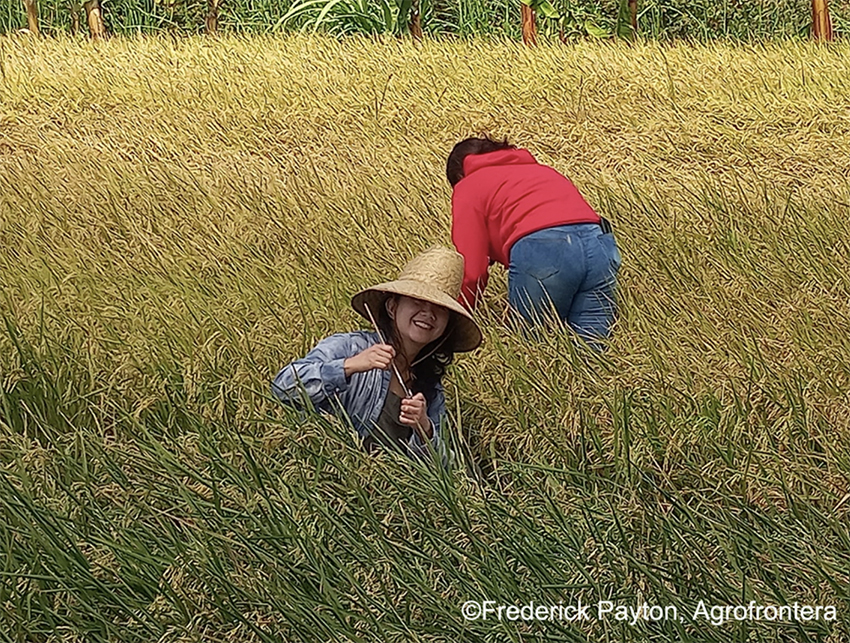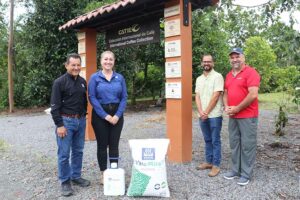Sustainable agribusiness in the Dominican Republic: turning barriers into opportunities

- Through the "Mangroves for Development" project, public and private companies are called upon to connect the production of the community of Montecristi, in the Dominican Republic, with national markets.
November 29, 2022. The document summarizes the main conclusions, mapping and analysis of four production chains in Montecristi, which is part of the Sustainable Agribusiness component of the Mangroves for Development (MPD, its Spanish acronym) project to improve the participation and entrepreneurial capacity of producer organizations in the sheep and goat meat, milk, rice and honey chains.
El documento resume las principales conclusiones, mapeo y análisis de cuatro cadenas productivas de Montecristi, el cual forma parte del componente de Agronegocios Sostenibles del proyecto Manglares para el Desarrollo (MPD) para mejorar la participación y capacidad empresarial de las organizaciones productoras de las cadenas de carne ovino-caprina, leche, arroz y miel.
The mapping and analysis work identified important findings that reveal the need for urgent intervention to reduce the negative impact of certain productive activities that contribute to mangrove and predominant dry forest degradation.
Among the results obtained by CATIE, it was indicated that it is possible to improve people's livelihoods, mainly their income with sustainability-oriented activities, while protecting mangrove areas and connecting such production with markets that recognize the efforts of farmers in the creation of friendlier dynamics, in order to create more inclusive and fairer business relationships.
During the presentation, the Director of Coastal Resources of the Ministry of the Environment and Natural Resources, Francisco Ortiz, said: "Climate change is a reality that we cannot change, but we can change the behavior of humans in the face of it".
Currently, the rice chain alone involves about 35,000 producers in the country. In the case of Montecristi, the initiative led by AgroFrontera together with FontGamundi and Agro360 towards a mangrove-friendly production system is recognized, for which further capacity building is required in local sectors, technicians and technicians with better preparation, access to financing according to the potential users and strengthening actions towards a seal that differentiates the rice harvested with better environmental and social practices.
With regard to the bovine milk production chain, which is characterized by its artisanal and low-tech nature, the need to build alliances through the General Directorate of Livestock to improve aspects such as animal genetics, milking and collection technology, milk quality standardization and value addition was emphasized.
Similar to the production of sheep and goat meat, it is necessary to work in collaboration with the General Directorate of Livestock, since it is a family and rustic activity with a high demand, however, it has little development in the intermediate links of transformation and cold chain to demanding markets.
Some of the main challenges that emerged are: working to strengthen associative rural enterprises towards an entrepreneurial vision, strengthening technical assistance, establishing systems for adapting to climate change, and fostering strategic relationships between producers and agri-food industries that are sensitive to issues such as sustainability and inclusion in business.
Miriam Estela Guzmán de Tejada, Vice Minister of Rural Development, acknowledged that the contributions presented will be considered in the Vice Ministry's projects to analyze the impact of cattle and sheep and goat farming on mangrove forests. In addition Carlos Ávila, FAO representative, mentioned the importance of the inputs provided by the value chains and agribusiness team for FAO's five-year planning as part of its support to the Dominican Republic.
The objective of this meeting was to identify strategic alliances to strengthen the actions of the MPD in the Value Chains and Sustainable Agribusiness component with the institutions and companies present, which will be followed up in the short term in order to strengthen the actions of the MPD and ensure the sustainability of the process over time.
More information:
Evelyn Chaves Jaén
Agribusiness Development Specialist
Climate Action Unit
evelyn.chaves@catie.ac.cr



